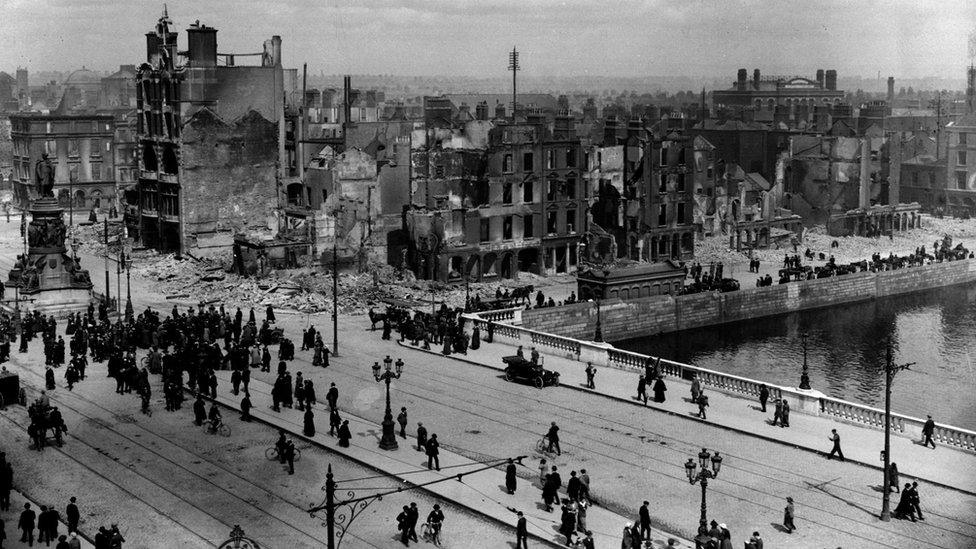Easter Rising 1916: Grand niece's mission to have Constable Charles McGee remembered
- Published
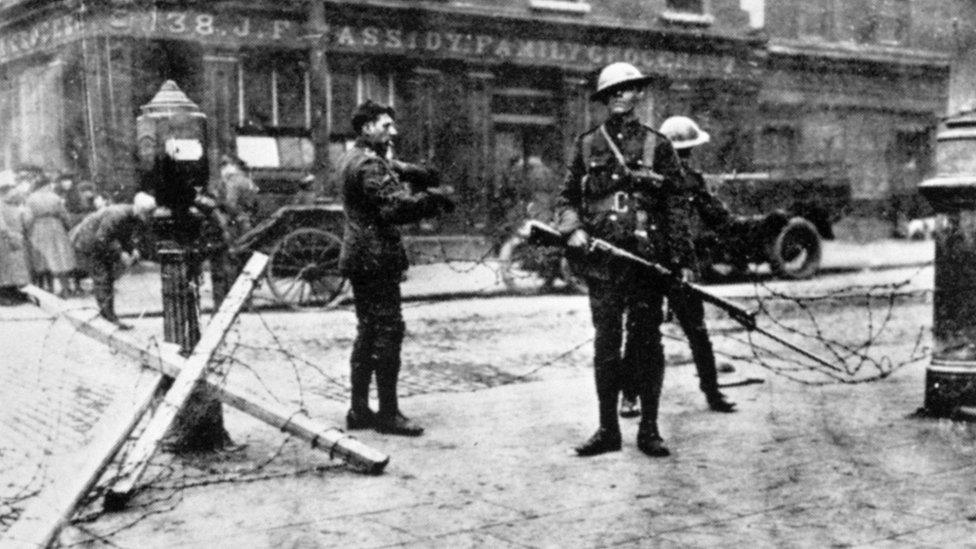
Road blocks and British troops on the streets of Dublin in 1916
The story of the first policeman to die in Ireland's Easter Rising was barely spoken about in Irish woman Madge O'Boyle's family as she grew up.
Her great uncle, Constable Charles McGee of the Royal Irish Constabulary, (RIC), was shot dead near Castlebellingham on Easter Monday 1916.
Sixteen policemen died after the British moved in to stop the Rising.
"He wasn't spoken much about in the family circle," said Dr O'Boyle who is a historian.
Madge O'Boyle's great uncle was the first police officer to die
"There is a certain secrecy and a denial in speaking about family members who were in the Royal Irish Constabulary."
It was only in the 1980s when she chanced upon a book about Irish military history in a shop in Dundalk, County Louth, that the opportunity to find out more arose.
"Charles McGee was a single man and he was 23 years old when he died," she told BBC Northern Ireland's Good Morning Ulster.

More about the Easter Rising

"He was born on the remote island of north west Inishbofin in County Donegal. He was the first member of the family to become involved in any type of profession. He was a fisherman before joining. At that time, fishing or emigration were the only options for young men from that area.
"A small group of men from there had joined the British Army and some had died in World War I. He had expressed the idea of leaving the force and going to work as a detective in Scotland but that wasn't to be."
Dr O'Boyle set out to discover how Constable McGee died and to ensure that he, also, should not be forgotten in the story of the foundation of the Irish state.
He was shot while on duty in Castlebellingham, County Louth.
"I found out that his death was due to a combination of things: lack of proper planning and training of volunteers in County Louth and the confusion caused by Eoin McNeill's countermanding the order on Easter Sunday, as well as the use of outdated and poor ammunition on that day. It was man made, it proved deadlier and was worse than the usual type used."
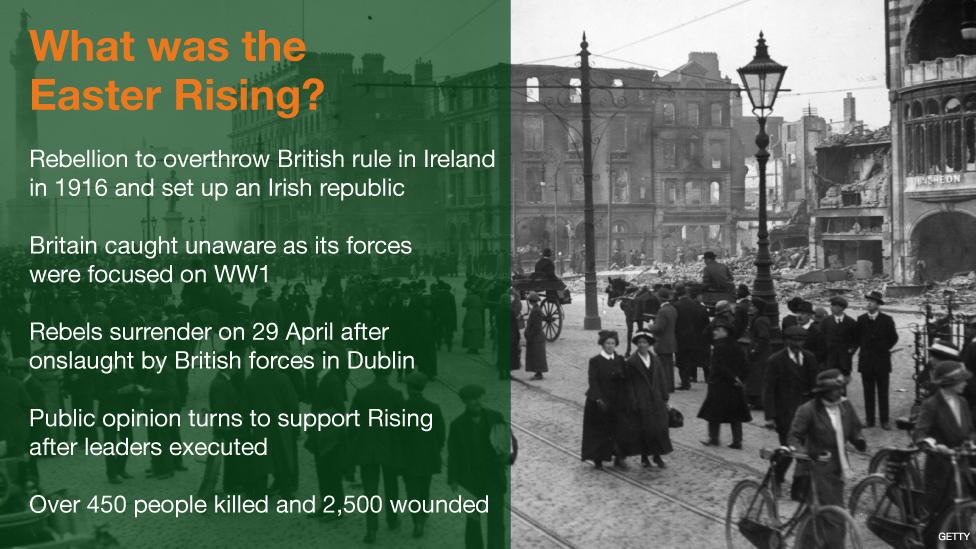
Historian Eamonn Phoenix told the story of that shooting.
"Twenty-five year old Seán MacEntee from Belfast was the commandant of those volunteers. He was just leaving when shots rang out.
"The young constable, an Irish speaker, had been carrying dispatches which had been taken from him. He was lined up with other prisoners. Lieutenant Dunville from Belfast, one of the famous distilling family was there in full military uniform and he made some sort of motion. One of the volunteers fired killing Constable McGee and wounding the officer.
"The interesting thing is MacEntee was sentenced to death for the murder, but his life was saved by a Belfast unionist councillor who was also there and said he had kept his men well. Three people come out of that story, the tragic victim was Constable McGee."
For Madge O'Boyle, the centenary celebrations are particularly poignant.
"I am proud that the memory of Charles McGee has finally been recognised after 100 years," she said.
"Up until now, only the leaders and those who proclaimed the republic were mentioned.
"I set out to ensure that his memory would live down through the generations. I know now that I have finally achieved that."
- Published25 March 2016
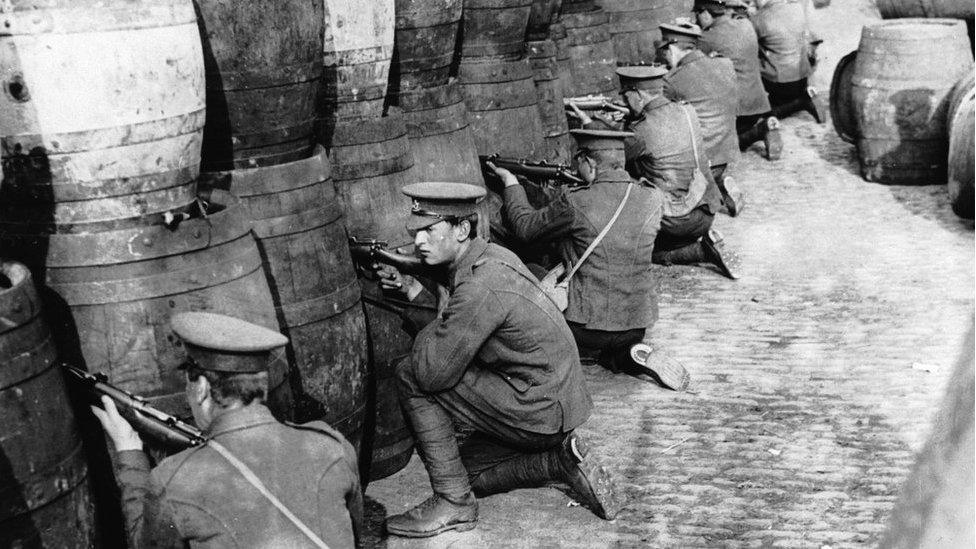
- Published23 March 2016
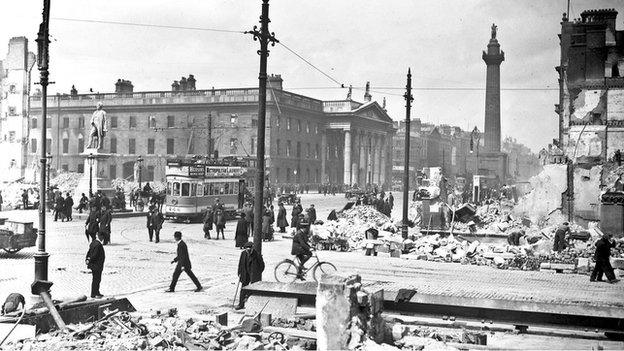
- Published23 March 2016
